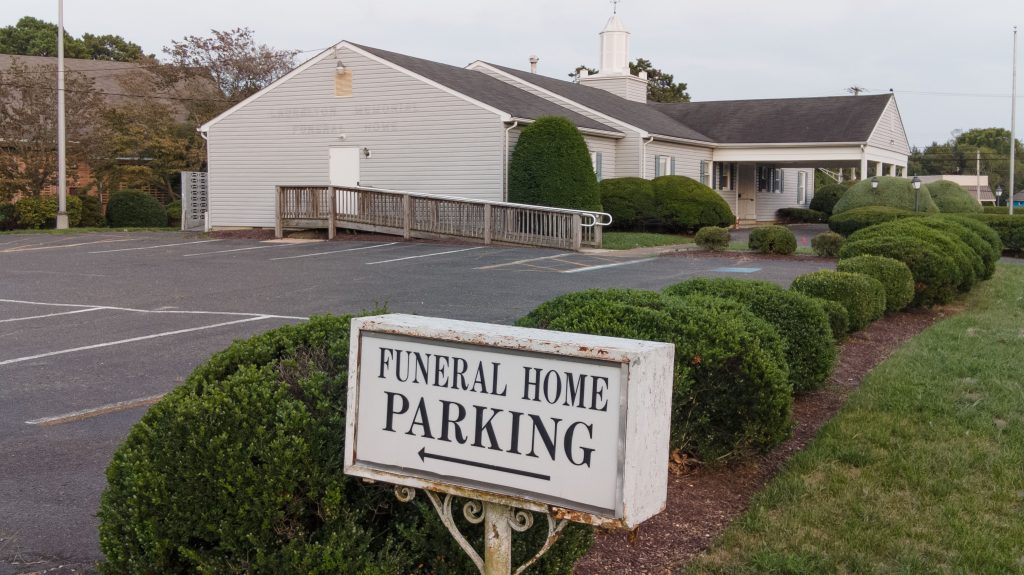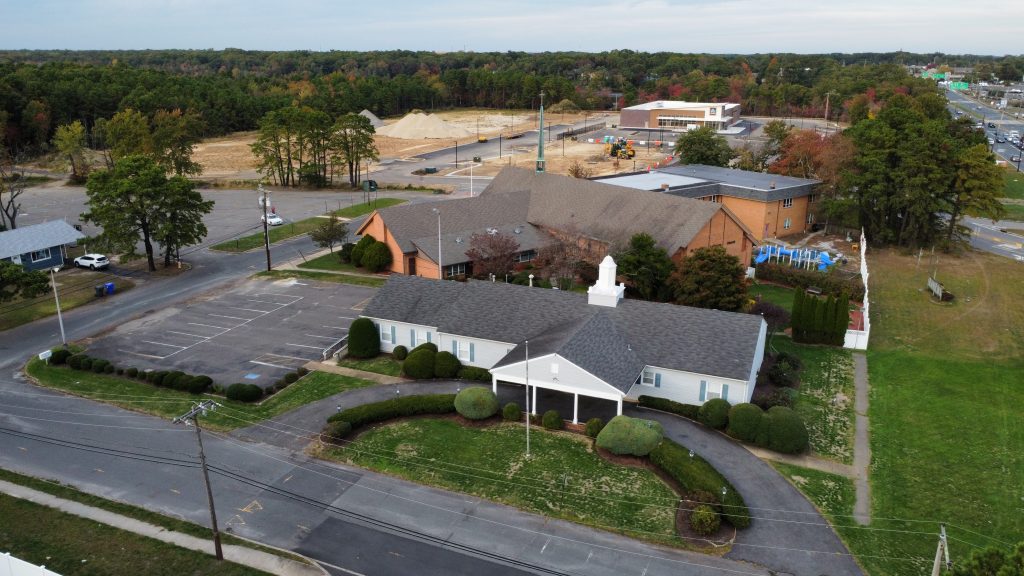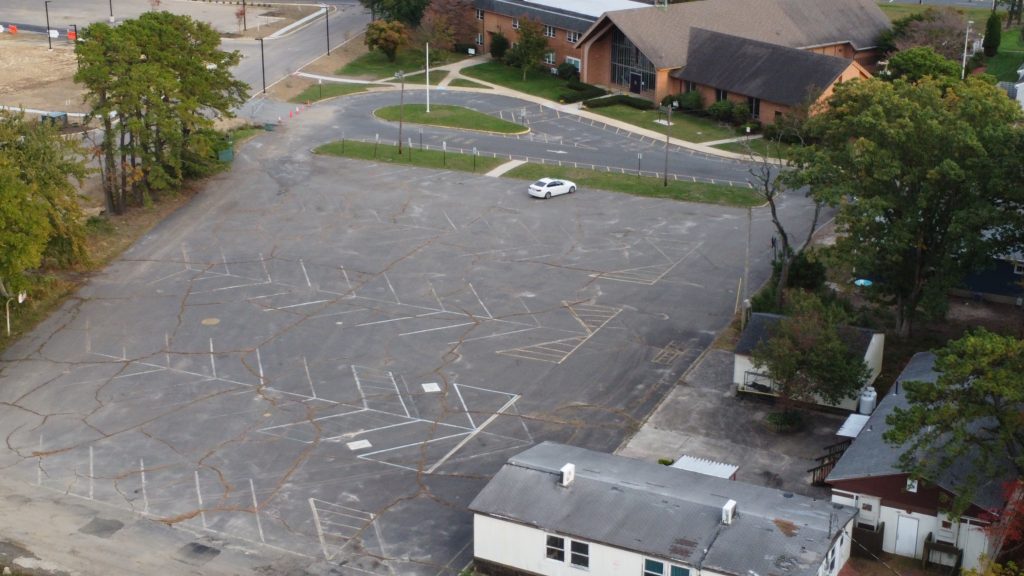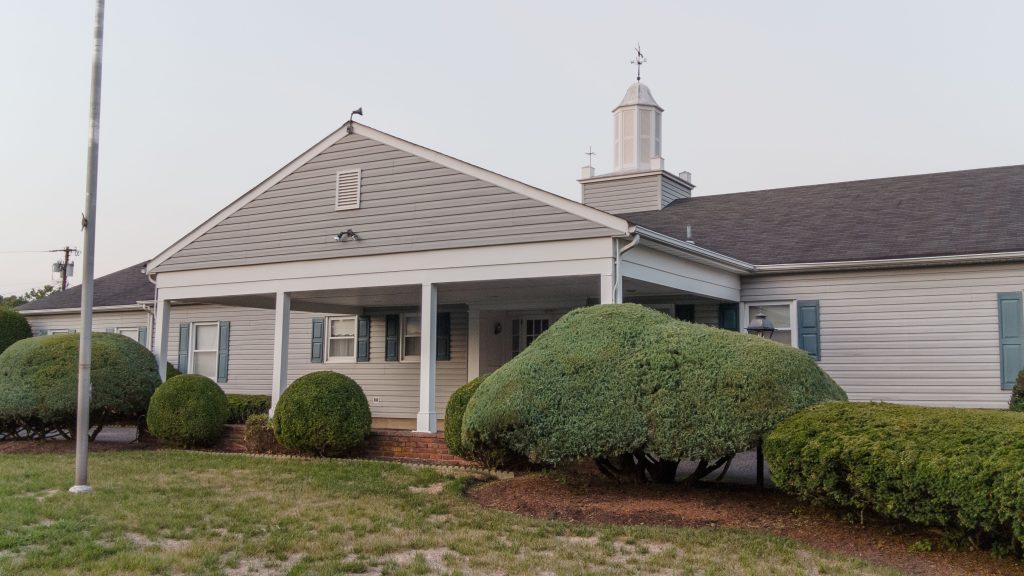
The proposed location for Temple Beth Or, in the former Laurelton Funeral Home building, Brick, N.J., Sept. 2022. (Photo: Daniel Nee)
The second time was a charm for the members of Temple Beth Or, the decades-old Conservative Jewish congregation that was denied late last year from being able to worship in the new building they purchased on Salmon Street.
“Probably one of the most difficult nights in my professional career was when this application was turned down, and explaining to everyone in the hall what happened,” explained attorney John Jackson, representing the congregation before the board.
While a majority of board members did, indeed, vote in favor of allowing the temple to operate at the former Laurelton Memorial Funeral Home last October, a supermajority of board members was required. With the board short a voting member that night, two ‘no’ votes were enough to produce a “statutory denial,” leading the congregation to submit a new application last month.
|
|
While the application by the temple was fairly straightforward – converting a funeral home to a building with a worship area, meeting room and office – a hearing on the matter drew dozens of neighboring residents who stood in opposition to the temple operating from the site. At issue, they said, was the matter of traffic in their neighborhood and a concern that worshipers would park on the street, taking up spaces. But Rabbi Rubin, who leads the congregation, said the membership has dwindled to the point where only about 10 to 15 people come to services each weekend despite the building being able to fit a much larger number of participants. To that end, the temple formed a pact with St. Thomas Lutheran Church, located across the street, to use their parking lot for $12 per year (a largely ceremonial lease rate chosen humorously to represent the twelve apostles).
Houses of worship are permitted in the B-2 business zone, in which the property is located, as a conditional use. To satisfy the conditions, however, required adequate parking for a building of its size, regardless of how many worshipers will actually utilize the facility on a regular basis. Some zoning board members questioned the lease with St. Thomas, inquiring as to what would occur of St. Thomas were to be sold or the lease was otherwise broken. The group of neighbors used the parking issue as the crux of their opposition, which often expanded into the overall volume of traffic in their neighborhood, mainly caused by the presence of the Joe Canal’s liquor store, the new Provident Bank location on Chambers Bridge Road, and the recently-opened Aldi supermarket.

An aerial view of St. Thomas Lutheran Church and the proposed site of Temple Beth Or, Brick, N.J. (Photo: Daniel Nee)

An aerial view of St. Thomas Lutheran Church and the proposed site of Temple Beth Or, Brick, N.J. (Photo: Daniel Nee)
In the new application, Jackson specifically included language limiting the temple to 60 seats and measures that clarified the lease with St. Thomas. The 27-year lease will be recorded with the county clerk’s office, confirmed by documentation annually by the temple, and pass through the any future owners of the church property. Further, Jackson said his clients would consent to the parking lot lease being a condition of approval, meaning the zoning permit to operate the temple would be voided if the parking lot lease were to end.
The temple’s supporters reiterated the small number of congregants who come to worship, with Rubin testifying that the days of hosting religious education classes, Bingo games and similar events were over. The entire congregation consists of just 75 members, down by 10 from a year ago, and some of those members now live out of state and keep their membership active from afar to stay connected with their former community.
“Some are single people, some are couples, and we have very few children,” said Rubin. “It’s a slow decline, it’s demographics. If we have 10 people come, or 15 people, that’s a good turnout.”
Services generally draw about seven cars to the parking lot, he testified.
The measures taken were not enough to satisfy some neighbors, who again expressed concerns over the volume of traffic in their neighborhood and questioned future uses of the two religious properties.
“Everybody here has got to know the traffic jam that Chambers Bridge and Route 70 has been,” said resident Lauire Sigmon, whose home is located on the same street as the funeral home building. ” It’s very dangerous to allow more traffic in our neighborhood.”
“It’s extremely busy in our neighborhood now,” said resident Brian Scott, also of Salmon Street. “We have Joe Canal’s, we have a bank in our neighborhood. People are already parking here for Aldi. When the recreation center opens up, that’s not going to help our case either. Adding more volume is not the answer. This can’t be the only neighborhood where they have a safe place to worship.”
A St. Thomas congregant, however, said the temple has been meeting at its facility for more than a year and has not produced an uptick in traffic.

The proposed location for Temple Beth Or, in the former Laurelton Funeral Home building, Brick, N.J., Sept. 2022. (Photo: Daniel Nee)
Other resident offered concerns about future development or the theoretical subdivision of land, however hypothetical scenarios are beyond the jurisdiction of the zoning board, which is charged with judging the application on its merits alone. Since the temple is a religious use, the congregation had to meet a reduced legal burden in the matter. Normally, an applicant proposing a conditional use must satisfy a number of state-mandated positive criteria and mitigate negative criteria. But because houses of worship are considered inherently beneficial uses, the positive criteria is considered to be met by default, and the board can only deny the application if the negative criteria represents a “substantial detriment” to the township’s master plan and zoning ordinance.
A traffic expert hired by the board to review the case determined the temple would generate less traffic and fewer trips as compared to a funeral home use.
“In most circumstances, we’ll never exceed the 15 parking spaces we have on our own site,” Jackson said during a closing statement. “Then there is a huge parking lot next door that is rarely filled.”
A vote to approve the application drew a single dissenting vote, cast by board member Eileen Della Volle, who likewise voted against the application last year. Additionally, Della Volle expressed concern that the application was too similar in nature to the earlier application, invoking the legal doctrine of res judicata which would signify the matter having already been adjudicated.
Now that the application has been approved, the resolution will be memorialized with the conditions of approval at a future meeting. The temple will also install sidewalks in some areas of the property and upgrade its handicap access before opening for services.











